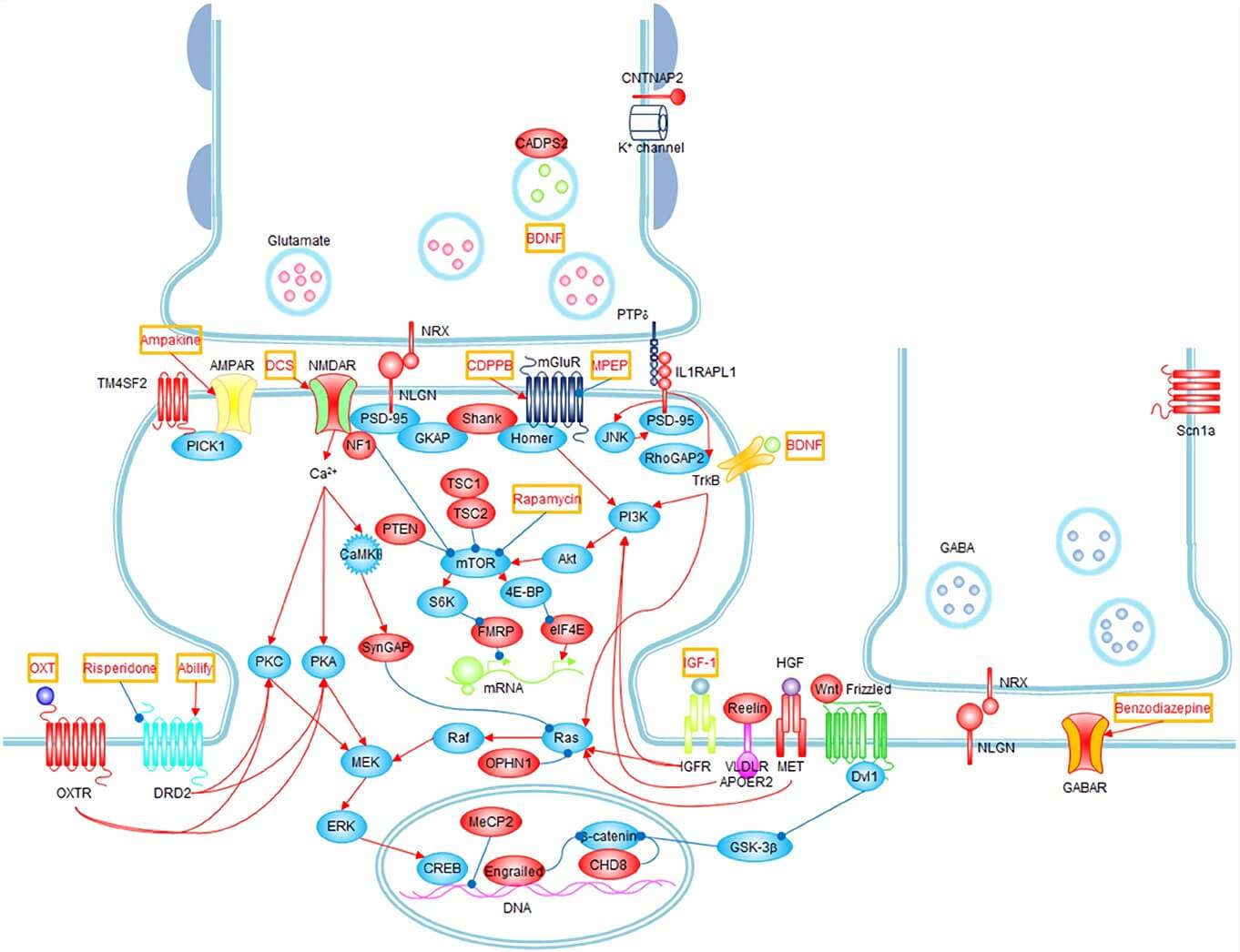Rodent Autism Spectrum Disorder Model
Creative Biolabs is one of the leading companies providing a wide range of animal disease models for screening and evaluation of new drugs and formulations. Particularly, we provide the BTBR mouse and knockout mouse models of Autism Spectrum Disorder coupled with a wide range of behavioral tests and endpoints to help advance the drug development projects of our clients.
Introduction of Autism Spectrum Disorder
Autism spectrum disorders (ASD) form a group of behaviorally defined neurodevelopmental disorders characterized by three core symptom domains: social interaction impairment, communication abnormalities, and restricted and repetitive patterns of behavior. Over the past years, more and more cases of ASD are diagnosed and the cost of treatment and care is huge, making it a significant public health problem. The etiology of ASD remains unclear, with multiple factors, such as genetic vulnerability and environmental factors, likely to contribute to an autistic phenotype. To investigate behavioral phenotypes and underlying pathophysiology and for developing new therapies of ASD, different preclinical research models have been developed, including chemically induced models, genetically engineered models, and spontaneous models.
 Fig.1 Signaling pathways and possible treatments associated with ASD. (Won et al. 2013)1, 2
Fig.1 Signaling pathways and possible treatments associated with ASD. (Won et al. 2013)1, 2
BTBR T+ tf/J Mouse Model
BTBR mice are currently the most widely used models for the study of ASD due to the following reasons:
- BTBR mice are an inbred strain that shows similar core behavioral deficits with ASD patients, including social communication impairments, repeated and stereotyped behaviors, reduction of social intercourse, lack of ultrasonic on social occasions and severe repeated grooming behavior.
- BTBR mice have shared functional and structural brain abnormities (i.e. striatum and corpus callosum anomalies) with children with ASD.
- They have shown maternal immune abnormalities similar to ASD.
- The BTBR mice are stable spontaneous models of ASD, which can be used directly without induction or genetic manipulations.
Knockout Mouse Models
With our genetically engineered mouse model platform , Creative Biolabs also conducts contract efficacy studies in knockout mouse models of ASD, including but are not limited to:
Cntnap2−/− mice - this model shows ASD core behavioral symptoms, hyperactivity and seizures, and loss of GABAergic neurons in the cortex, striatum, and hippocampus.
Fmr1 KO mice - this model has characteristics including attentional dysfunction, social anxiety, impaired social cognition, ultrasound vocalization deficits, seizures, etc.
Our Capabilities
- Efficacy study design of novel compounds and study protocols and can be customized to suit the special requirements of our clients.
- Animals can be purchased immediately after the order is placed, which allows for short turnaround time.
- A number of measurements can be conducted, including a comprehensive battery of behavioral tests (motor function, social behavior, cognitive function, anxiety-like behavior, etc.) and biochemical analysis (e.g., AChe and CHAT levels).
The neurological platform of Creative Biolabs provides an extensive range of rodent neurological disease models. If you are interested, click the following links for more detailed description of each model:
At Creative Biolabs, you will find the most comprehensive and competitive services for preclinical drug efficacy evaluation. We are glad to help our clients to choose the most suitable models and tailor study-specific protocols for testing your compounds. If you are interested in our services, please contact us to start the conversation.
References
- Won, H.; et al. Autism spectrum disorder causes, mechanisms, and treatments: focus on neuronal synapses[J]. Frontiers in Molecular Neuroscience. 2013, 6:19.
- under Open Access license CC BY 4.0, without modification.
For Research Use Only.
